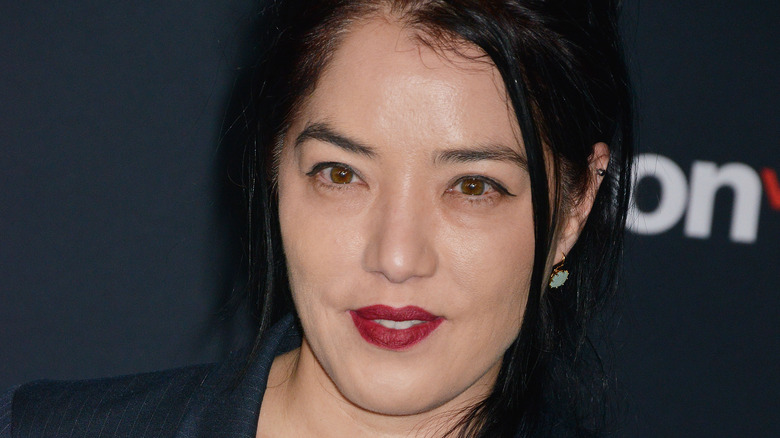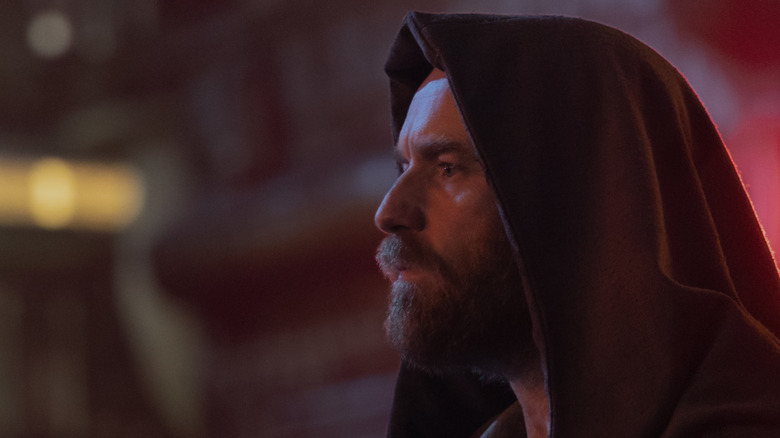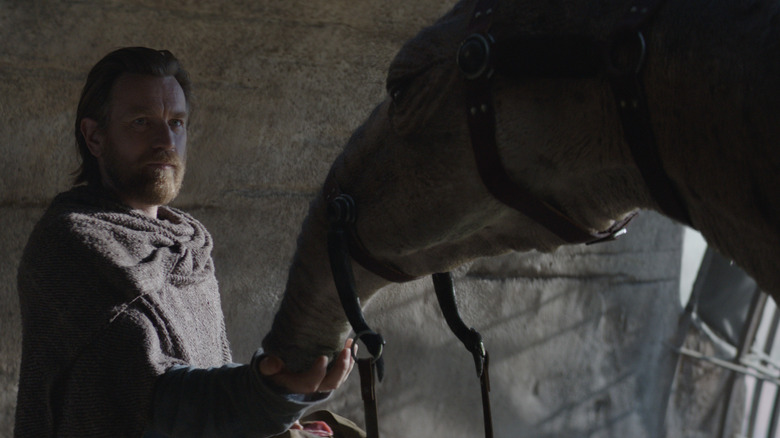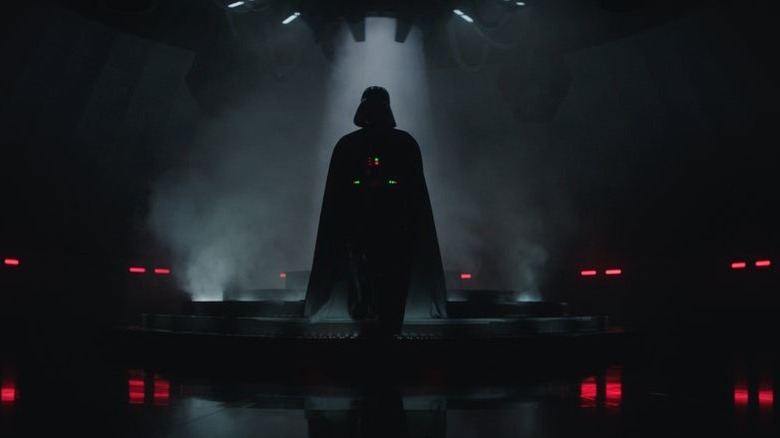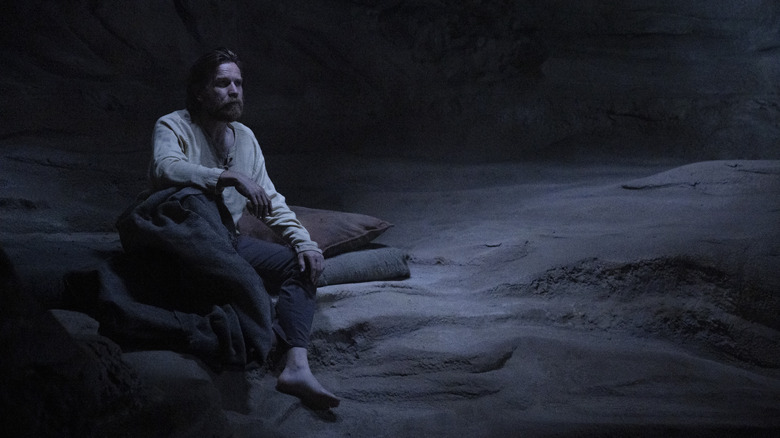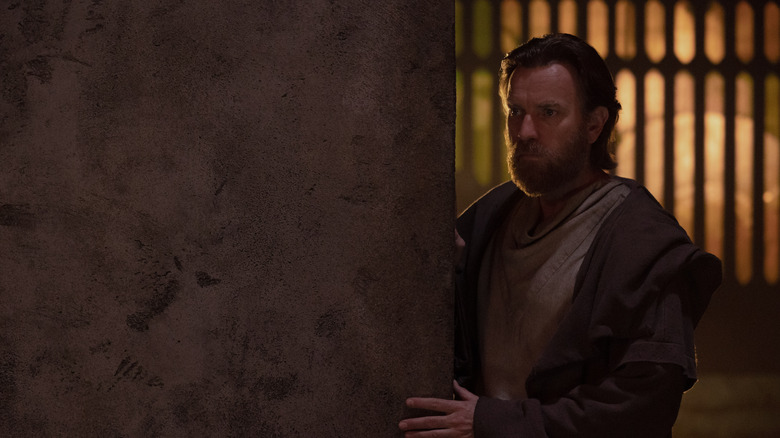Deborah Chow Talks Obi-Wan Kenobi Inspirations, The Skywalker Legacy, And The Series' Stars - Exclusive Interview
"Star Wars" fans who have tuned into the Disney+ series "The Mandalorian" are no stranger to Deborah Chow. Not only did she direct the episodes "The Sin" and "The Reckoning" in the series' first season, but she also played Sash Ketter in the episode "The Prisoner" that same year. Most recently, Chow was responsible for directing and executive producing all six episodes of the upcoming series "Obi-Wan Kenobi," starring Hayden Christensen (Darth Vader) and Ewan McGregor (Obi-Wan Kenobi).
However, the director's experience spans far beyond the "Star Wars" galaxy. She directed episodes of popular shows like "The Vampire Diaries," "Mr. Robot," "Iron Fist," "Jessica Jones," and "American Gods." She also directed six episodes of The CW series "Reign" between 2015 and 2017, along with two episodes of "Fear the Walking Dead." The director has even lent her hand to writing, costume designing, and the art department on a series of shorts.
During an exclusive interview with Looper, Deborah Chow dished on what it was like working with McGregor and Christensen in "Obi-Wan Kenobi" and how the series honors the legacy characters and "Revenge of the Sith." She also teased some locations and characterizations that fans might see in the upcoming series.
Christensen and McGregor: Forever Star Wars legends
It's been almost 20 years since Ewan McGregor and Hayden Christensen played Obi-Wan Kenobi and Darth Vader in "Revenge of the Sith." What was that experience like for them, getting back into their characters? Did it take a bit to reacquaint themselves, or did it just come naturally?
No, bringing back Ewan and Hayden, for me, Ewan was part of the show right from the get-go, and he was very creatively involved in the development. I remember the very first time we did a camera test, and he came on in his costume and came onto [the] set in character, and it felt like he slipped back into that so easily. We were all like, "Jesus, it's Obi-Wan Kenobi," right away.
They both slipped into the character very easily, but part of it is also, not only did they play these roles in the prequels, but they've also lived with these roles in the public eye, and it's been part of their lives for so long, that I don't know that it fully went away for them.
What was it like working with them and being part of the journey for them to reprise these beloved roles?
It was pretty incredible, and honestly, I don't know how many directors get to actually say, "I directed Darth Vader," you know what I mean? It's a pretty special thing to get to work with these legacy characters. One thing I was very grateful for — with both Ewan and Hayden — it's obvious they know these rules so incredibly well, but they were so open and so collaborative [in] working with me. For all of us, one of the most interesting things is that we were doing the characters, but we were doing the characters at a different point in their lives.
The Skywalkers: We meet again
This is the first project since the sequels that dives into the Skywalker story. What were some of the elements, characterizations, and looks of the original films and prequels that you wanted to shine through in "Obi-Wan Kenobi," and what are some ways that you tried to set it apart?
Our connective tissue is very strongly to the prequels, and particularly coming out of "Revenge of the Sith." So much of our story, what happened at the end of "Revenge of the Sith," is propelling us into this story. That was the biggest touchstone throughout making it.
The difference for me in making this one is that, especially in a limited series format where you have the time, but it's still one story, is that I was really excited about the opportunity to tell a character-driven story and to really have more time and have the depths to really get into Obi-Wan.
Are there any characters from the "Star Wars" universe that you wanted to get but weren't able to, for some reason?
That, you'll have to wait and see. You're going to have to get through the show. It's a little hard to get into that, unfortunately, until some of it's out.
The father of Star Wars
James Earl Jones' Darth Vader is such an iconic voice. How did you and Hayden and the editing department get that and nail that voice?
That's ... with all things Vader too, until this series comes out, it's quite hard to talk about it because we are obviously creating Vader in a different period of his life. Sadly, you'll have to wait.
We know young Luke will appear in the series, and rumor has it that Leia will too. What were you most looking for when casting young versions of Luke, or Luke and Leia, and how do you think their presence and energy honors the original characters?
With casting, especially when you're dealing with any sort of legacy character ... Ewan was the younger version of Sir Alec Guinness, and it's happened multiple times, with any sort of casting, you're always looking for the spirit — is that it feels like the character. When you get into any territory of trying to mimic another actor, it doesn't work. The biggest thing as a director is, you want to feel like this is the character in the heart and soul.
Vader vs. sand
We all know that Anakin hates sand. Might we see him deal with it again, maybe on Tatooine, and can you tease any of the planets and places we might see in the show?
Without getting into spoilers, "Obi-Wan" starts on Tatooine — that's a given. There is quite a lot of sand, and we've done a lot of sand, I'll tell you that much, in production, so that's part of it.
One of the things for me with "Star Wars" that I've always loved is, I love going to new planets, and I love seeing new characters and seeing some new worlds, so that is something that we definitely do with the show.
How involved, if at all, was George Lucas in telling this story, and has he seen any final cuts or anything?
I did meet with George, but George wasn't involved in the series at all.
Did he give opinions on anything or see anything?
He wasn't involved in any of it.
The many faces of Obi-Wan
We've seen two versions of Obi-Wan. [There's] the rule-following and the deeply empathetic version, who still has a zest for adventure, that we saw in the prequels. Then we saw the more reserved and haunted Ben Kenobi,[who] was a bit more of a recluse. Being that the show is ten years after "Revenge of the Sith," and about ten years before "New Hope," how do you think Obi-Wan falls in between these two iterations of himself?
That was one of the most interesting things is having Ewan play this character at this moment in his life, and coming out of "Revenge of the Sith" from Order 66 and everything that happened with Anakin, there's a tremendous amount of weight. He is also very isolated, where so many people that he loved have either been killed or they're in hiding or ... you know ... and it's also a dark time period in the galaxy at this moment. It's a very interesting moment to start this character, and he's not the exact character he was in the prequels, nor is he Sir Alec Guinness — and that's what was interesting is that we were looking at the period in between, which is the bridge.
What has been the most exciting or most challenging aspect of taking on such a weighted series?
It's in that legacy, and it's in the canon, and being between two trilogies. There's a tremendous responsibility that comes with that, but at the same time, you want to be able to tell an original story and have a new vision, so that's been the biggest challenge, but it's also been the thing that's the most exciting, is that we do get to tell a story with these characters again.
The first two episodes of "Obi-Wan Kenobi" air on Disney+ May 27, with subsequent episodes releasing on Fridays.
